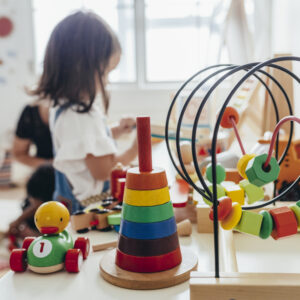Tips for a Healthy Pregnancy


- Take a prenatal. Prenatal vitamins, which are available at drugstores, help ensure that you get the proper nutrients, especially folic acid, for your growing baby.
- Get prenatal care. Seeing a healthcare provider regularly during pregnancy is important to make sure that your pregnancy is progressing how it should be and you are in good health.
- Exercise. Exercising regularly is great for your overall health, and it can help you sleep better too. Moderate exercise like walking, swimming or even yoga or pilates are a great way to get moving. Be sure to work in some kegels to help your pelvic muscles too! Before starting any regular exercise regime, make sure you talk to your doctor about what is healthy for you.
- Eat healthy and eliminate toxins. Eating healthy is important for everyone, but now that your diet is supporting your tiny baby, it’s even more important. Folate rich foods like fortified cereals, asparagus, oranges, and orange juice help your baby’s neural tube, which covers the spinal cord, develop. While you’re pregnant, there’s also certain things you shouldn’t eat or drink, like alcohol, excess caffeine, raw or undercooked animal products, and others. It’s also recommended that pregnant women don’t smoke cigarettes or use drugs.
- Educate yourself. If this is your first baby, it’s definitely a good idea to take a prepared childbirth class to learn more about the birthing process, infant care, breastfeeding and more. However, even if this isn’t your first child, it’s still a good idea to remind yourself of these things. You can also educate yourself more on your family’s medical history and talk to your doctor about any issues with past pregnancies or birth defects in your family.
- Write a birth plan. After educating yourself more, come up with a birth plan. You can cover whether you want a natural or medicated birth, certain comfort things you may want in the delivery room, who you want there, etc. but be prepared for things to change or be more fluid when you’re actually there.
- Change up chores. While pregnant, you want to limit your exposure to toxic chemicals and bacteria that you could come into contact with while cleaning around the house. You also want to have someone else change the cat litter box if you have one and avoid climbing on step stools or ladders.
- Check your medications. You’ll definitely want to your doctor about any prescription pills you may be taking and whether or not they’re safe for pregnancy. It’s also a good idea to go over what over the counter medications are safe to take, as even things like ibuprofen are not recommended.
- Drink lots of water. Now that you’re pregnant, you are supplying everything your baby needs. Because of this the amount of blood in your body increases by up to 50 percent to handle everything. Drinking more water helps support that, and as a bonus it can help prevent constipation, hemorrhoids, UTIs, fatigue, headaches, swelling, and other pregnancy symptoms that aren’t so fun.
- Wash your hands. Keeping your hands clean can protect you and your baby from bacteria and viruses that can cause illnesses like the flu, COVID-19, Group B streptococcus, and others. If you can’t wash your hands, alcohol based sanitizers are another great option.
- Get your rest. Being well rested is good for your mental and overall health, which makes it good for baby too.
- Know when to call the doctor. While the tips listed above can help you have a healthy pregnancy, you may not be able to prevent certain health conditions. If you experience the symptoms listed below, you should call your doctor immediately.
- Pain of any kind
- Strong cramps
- Contractions at 20-minute intervals
- Vaginal bleeding or leaking of fluid
- Dizziness or fainting
- Shortness of breath
- Heart palpitations
- Constant nausea and vomiting
- Trouble walking, edema (swelling of joints)
- Decreased activity by the baby
https://www.parents.com/pregnancy/my-body/pregnancy-health/healthy-pregnancy-tips/
How to Buy Safe Toys this Christmas


With the holiday season comes holiday shopping, and we love finding that perfect gift for our loved ones. If you’re shopping for kids this year, finding the perfect gift should also mean finding a gift that’s safe. Every year, thousands of children are injured by toys. While most of these are minor cuts, scrapes, or bruises, toys can cause death or a major injury.
- Read the label. The labels on toys give important information on what age the toy is appropriate for, so make sure that the toy you’re picking out matches up with the age of the child you want to give it to. This ensures that the toy will be used properly and reduces the risk of injury.
- Think large. Small toys can increase the risk of choking, especially in small children. Make sure you’re picking out toys and parts that are larger than your child’s mouth this holiday season.
- Skip toys that shoot objects into the air. Toys with some sort of shooting component can cause eye injuries or choking in small children.
- Avoid loud toys. Loud toys can damage a child’s hearing. We know parents will thank you for this one too!
- Check the quality of toys. Make sure you’re choosing toys that are sturdy and well made without pieces that can come off or break easily. This can prevent choking too. It’s also a good idea to look for UL Approved on the label of electric toys and choose toys with “non-toxic” on the label as well.
- Avoid chemistry and hobby sets for children younger than 12. Kits like this can cause fires or explosions without proper supervision, and they may contain dangerous chemicals.
- Be careful when buying toys for a crib. It’s usually a good idea to skip extra things for a crib altogether. Stuffed animals, soft bedding, and crib bumpers can all increase the risk of suffocation and SIDS in babies. While hanging crib toys like mobiles or crib gyms are okay, make sure that they are out of baby’s reach and are moved once baby starts to push up on their hands and knees.
https://www.healthychildren.org/English/safety-prevention/at-home/Pages/How-to-Buy-Safe-Toys.aspx






